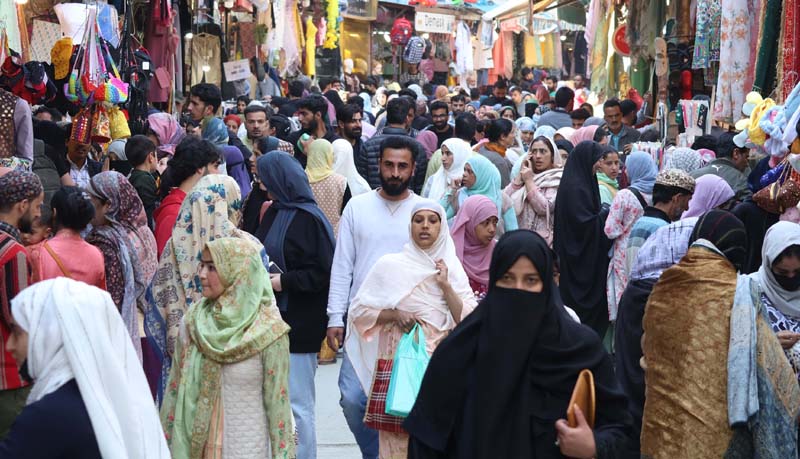Kashmir Witnesses Major Downturn in Eid Shopping: Garment Sales Plunge by 95%
Srinagar, March 28, 2025 – With Eid-ul-Fitr just days away, Kashmir’s markets are experiencing an unprecedented slowdown in shopping activity, particularly in the garment sector, where sales have plummeted by a staggering 95%. Traders across the valley are reporting severe financial distress, attributing the downturn to rising inflation, high taxation, and declining purchasing power among consumers.
Economic Challenges for Traders
Trade leader Mohammad Yaseen Khan, Chairman of the Kashmir Economic Alliance (KEA), highlighted the struggles faced by businesses during what is traditionally a peak shopping season. “The business community is facing immense difficulties. Shops are shutting down due to lack of sales, and many retailers are unable to clear their dues,” Khan stated.
The garment industry, which typically thrives during Eid festivities, has been hit hardest. Traders have cited steep tax rates, reaching up to 28%, as a major factor contributing to the unaffordability of goods for the common people. Additionally, financial institutions are tightening their grip on debt-ridden traders, further exacerbating the crisis.
Impact on Consumer Behavior
The economic strain has led to a noticeable shift in consumer behavior, with many opting for heavily discounted items or avoiding shopping altogether. Khan flagged concerns over the influx of discounted goods in the valley, questioning their sourcing and pricing. “Suddenly, we see jackets being sold at 40–50% discounts. Where are these products coming from? Who is selling them, and at what cost?” he remarked.
Broader Implications
The downturn in Eid shopping reflects broader economic distress in the region, with even essential sectors like pharmaceuticals reporting declining sales. Traders fear that the collapse of businesses could have long-term repercussions for Kashmir’s economy, which is already under severe pressure.


